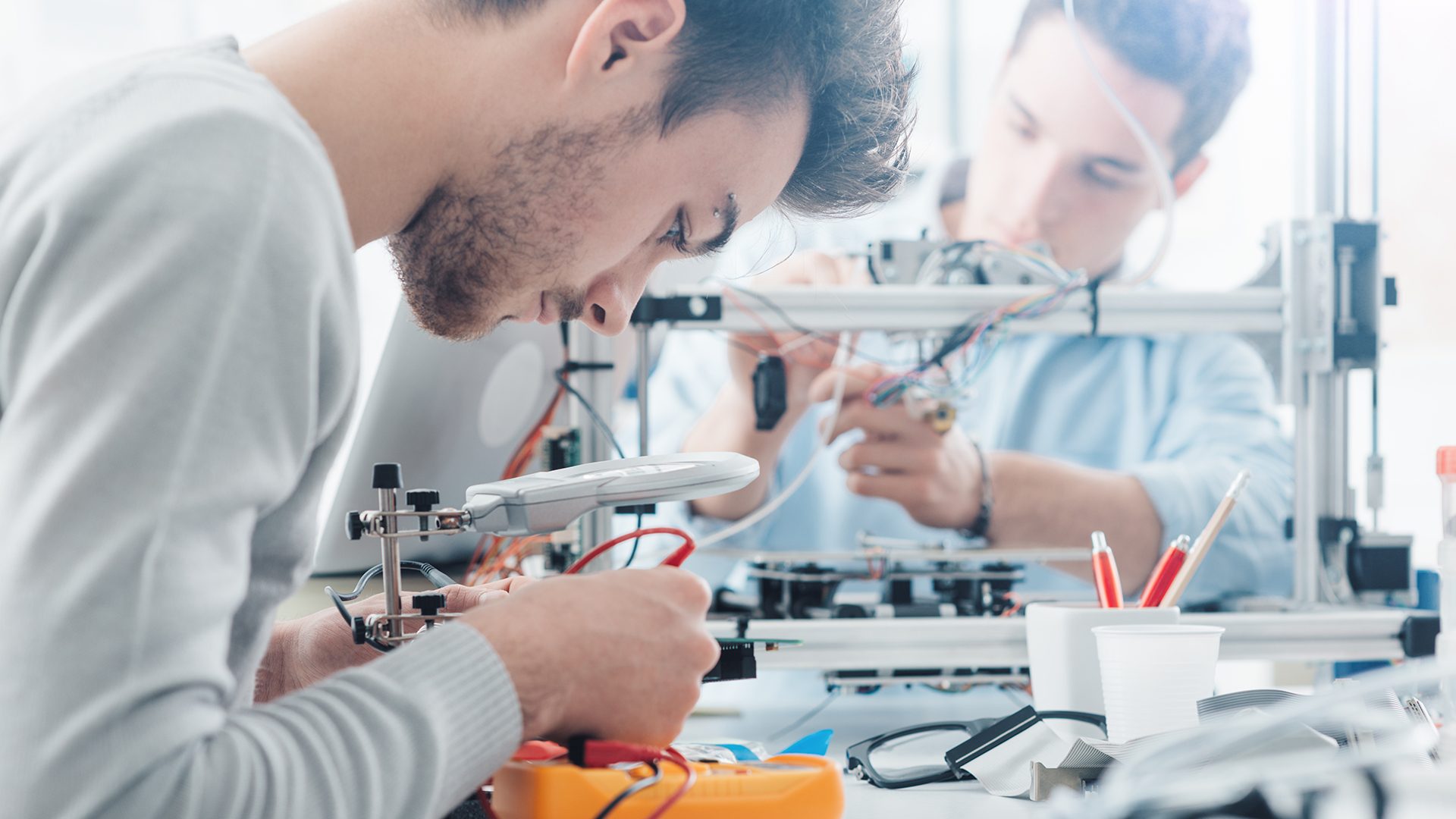Work with us
The Hub’s role is to help industry access the latest photonics innovation and understand how it can be used in manufacturing. There’s an emphasis on accelerating the adoption of next-generation photonics technologies through integration.
The Hub provides businesses with access to leading researchers who spend time understanding the challenges they face and where next-generation photonics can have impact on the organisation.
Together, we can explore not only what’s possible but what will be profitable.
Ways of working
There are a wide range of collaboration models to suit a different business needs.
These range from fully-funded multi-million pound, multi-year research projects, through to small scale feasibility studies and insights on technology potential.
Studentships
Sponsoring PhD students is a very effective way to develop fresh talent. It provides students with hard-to-find, hands on experience of practical experimentation that can be applied in industry.

Benefits of working together
- Maintaining your leading-edge
- Differentiating your products
- Making you more competitive
- Producing high-value products
- Creating new markets
- Staff development
Fuelling innovation
Our £1 million Photonics Innovation Fund is enabling us to build a national network of academic partners, equipped to respond to emerging industrial challenges.
So far, we have awarded £650,000 in grant funding to projects led by UK researchers offering new capabilities relevant to industry but outside of our core expertise. Recently, we have collaborated with other EPSRC Future Manufacturing Research Hubs to jointly fund projects that exploit research synergies and allow access to a wider range of facilities and equipment.
Our role is to stimulate collaborations between academia and industry. We work with companies across the photonics supply chain from component manufacturers to large, end-users in a range of market sectors.
Apply for funding now
Call for Feasibility Studies – EPSRC Future Manufacturing Hubs
- Opens: Wednesday 12 May 2021
- Closing date for applications: 17:00 Thursday 22 July 2021
The Future Photonics Hub has partnered with the EPSRC Future Manufacturing Research Hubs in Composites, Electrical Machines and Metrology to offer up to £900,000 in funding to support a number of Feasibility Studies at TRLs 1 to 3. The funding is available for novel research in manufacturing technologies pertinent to the priority areas identified by each of the four partner Hubs, including up to £150,000 for photonics research.
Proposals are envisaged to have a maximum duration of six months and maximum value of £62,500 at full Economic Cost (fEC), with funding to be awarded at 80% of fEC.
Previous funded projects include
Growth of large Pockels coefficient PZT and BTO layers on Si
Professor Brian Hayden, University of Southampton
Mid-infrared diamond integration photonics: a feasibility study
Dr Maziar Nezhad, University of Bangor
Integration of 2D materials with established silicon photonics and electronics platforms
Dr Ioannis Zeimpekis-Karakonstantinos, University of Southampton
Measuring lung inhomogeneity by paediatric cystic fibrosis
Dr Grant Ritchie, University of Oxford
Large-scale manufacturing of metamaterials with direct laser writing
Dr Martynas Beresna, University of Southampton
Integrated graphene on Ge/Si platform for mid-IR photodetectors
Professor Stephan Hofman, University of Cambridge
Chiral light sensor fabricated by chiral light
Dr Konstantin Borisenko, University of Oxford
Low cost manufacturing of integrated LIDAR arrays
Professor Frederic Gardes, University of Southampton and Imperial College London
Parallel micro-assembly of quantum cascade lasers on germanium
Dr Michael Strain, University of Strathclyde
Manufacturing process of laser fibre depolariser
Professor Radan Slavik, University of Southampton and Phoenix Photonics
3D interconnect technologies
Professor Robert Thomson, Heriot-Watt University
All-dielectric surface wave devices for light generation with 2D material
Professor John Rarity, University of Bristol
Stay in touch
We’d love to send you our newsletter. You’ll be the first to hear about the latest advancements in research, events and funding opportunities.